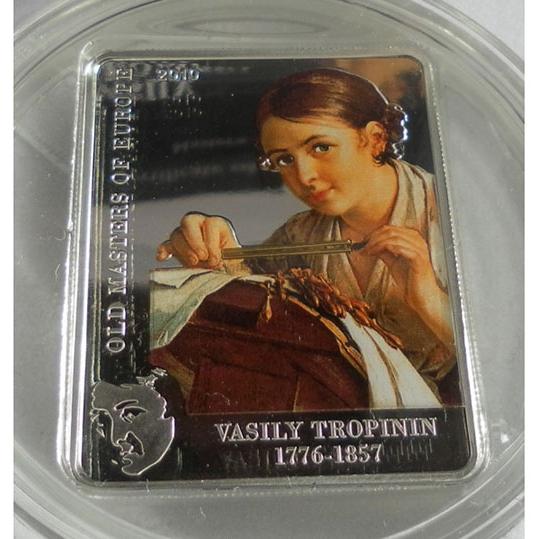There are picturesque canvases that are immediately remembered and sink into the soul with some special quiet beauty and spirituality. Such is the painting "The Lacemaker", which belongs to the brush of the famous Russian artist Vasily Andreyevich Tropinin.
We will tell you about the history of the creation of this work of art, about who is depicted in this portrait, as well as a number of interesting facts from the biography of the painter.
Facts from the biography of V. A. Tropinin
Tropinin’s painting “The Lacemaker” is such a perfect and wonderful creation that it would never occur to the audience to doubt the talent and skill of the artist. Meanwhile, Vasily Andreyevich Tropinin was born a serf, and there were many obstacles on his way to creativity and freedom. Just think: if the stars were less supportive of this gifted person, then his artistic talent might not be developed.
So, V.A. Tropinin was born in 1776. When the future painter grew up, Count Morkov, who was then his master, sent the boy to St. Petersburg to study confectionery. But the teenager’s talent for drawing showed so clearly that, by the will of fate, he was still able to attend the classes of the Academy of Arts. At that happy time, Tropinin met Sylvester Shchedrin, Orest Kiprensky, Alexander Ivanov. There were eminent people who began to intercede before Count Morkov so that he would give the young man free. But he, on the contrary, ordered Tropinin to return to take up the lackey position.
Vasily Andreevich received freedom only in 1823, at that time he was already 44 years old.
How and when the painting "Lacemaker" was painted
Immediately after gaining the long-awaited freedom, the artist goes to the city dear to his heart - St. Petersburg. He longs for a painter’s diploma at the Academy of Fine Arts, where he once studied the fine art of drawing. In order to demonstrate skill before a strict academic commission, he had to submit several paintings to the court. The painting "Lacemaker" was among these.
Members of the commission gave the canvas the highest rating. And the academician’s diploma was solemnly awarded to Tropinin. The Lacemaker was warmly received by critics. They admired the color scheme, lighting, the artist’s ability to convey the character of the model. True, there were also those who were unhappy, accusing Vasily Andreevich of trying to idealize simple labor, that the heroine of the picture was completely unlike a peasant girl: her movements are too graceful and her hands are tender. But these isolated criticisms were lost against the backdrop of universal enthusiasm.
Description of the canvas
The painting "The Lacemaker" (genre portrait) depicts a cute young girl leaning over her work. She seemed distracted for a moment and met her eyes with the viewer, who suddenly entered the room. The hands of the young lady, almost completely naked, froze for only a second. It seems that after a moment she will again plunge into work and begin to weave ornate lace patterns. The lacemaker does not pose - she lives.
Description of the painting "Lacemaker" is impossible without a story about the amazing appearance of the main character. On the one hand, she is a simple girl. She is wearing the usual peasant outfit and there are no decorations. But her face glows, and not only with beauty and affability, but also with her mind. And the whole lace pose is very graceful. In a word, any noblewoman of those times could envy such a lovely, elegant, and at the same time simple appearance.

The overall color of the picture painted in soft, restrained and natural silver-greenish-olive tones is very beautiful. All the viewer's attention is immediately riveted to the heroine's face, which, as it were, shines from the inside, to her eyes and a barely noticeable smile. Tropinin masterfully wrote out all the small items: bobbins, part of lace needlework, scissors on the work table, unpretentious items of clothing for the worker. In this work, the painter poetizes the work and harmony of a simple and honest everyday life.
Such is the picture "Lacemaker". The artist, seeing the love and popularity of his creation among his contemporaries, several times repeated in different versions the story he liked and the audience. Needless to say, after the success of the canvas, Tropinin was literally inundated with numerous orders for portraits.
Where can I see the "Lacemaker"
Tropinin’s painting “The Lacemaker” today occupies a worthy place among the paintings of the Moscow Tretyakov Gallery in Lavrushensky Lane, at number 10, in the room under the thirteenth number. Here are many other Tropinin portraits and landscapes. The museum receives visitors six days a week, except Monday (day off).
Conclusion
They say that Russian portraiture is famous all over the world for its special poetry and spirituality. The portrait of lace artist Tropinin is one of the most striking evidence of this.